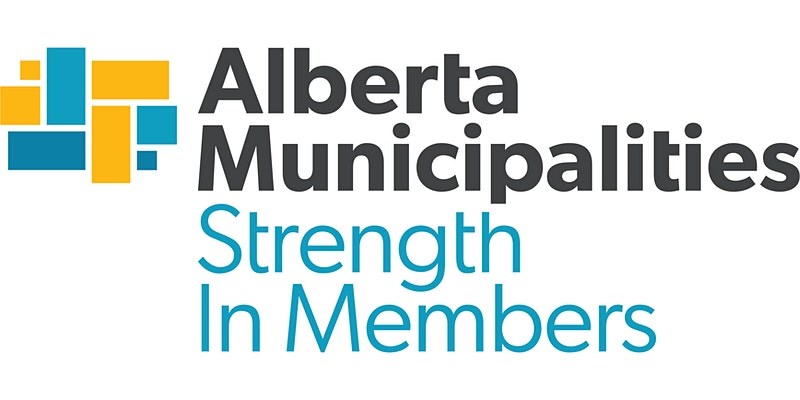BARRHEAD - Neutrality may not be everything it is cracked up to be, according to the organization that represents Alberta’s municipalities.
That’s what ABMunis's director of Towns West, Krista Gardner, told Town & Country This Week when asked about the organization's efforts to clarify its position in light of proposed and passed bylaws in Barrhead and Westlock respectively regarding crosswalks and flags on municipal property.
"They say neutrality, but this is a code," she said. "What they are doing is attacking one specific group [Two-Spirit, Lesbian, Gay, Bisexual, Transgender, Queer or Questioning or 2SLGBTQ+ community].
ABMunis is an advocacy group that works to lobby the provincial and federal government on issues concerning its members (summer villages, villages, towns, cities, and other specialized municipalities). It represents roughly 260 members, including the towns of Athabasca, Barrhead and Westlock.
"We started (the document) as the result of what was happening in Westlock," she said.
In March, the Town of Westlock passed its Neutrality Bylaw, restricting crosswalks within its borders to the traditional white strips and all flags flown on municipality facilities to the Canadian, provincial and municipal only.
Council was forced to enact the bylaw following a petition submitted last fall, which triggered a plebiscite in February, where residents voted in favour of the bylaw by a margin of 663 to 639.
In June, Barrhead Neutrality started a similar petition (shortly after Barrhead OutProud pained a Pride rainbow crosswalk) with help from the Westlock organization. On July 26, the group stated through its Facebook page that it submitted the petition to the municipality with 856 signatures.
"All of a sudden, we started getting all these questions from towns and villages about what [such a bylaw] means and what they should be doing," she said.
Gardner said the document also fits into ABMunis' Welcoming and Inclusive Communities (WIC) initiative that started in 2016.
The WIC initiative works to create communities where all residents and visitors enjoy a sense of belonging and where diversity adds to the social and economic vibrancy of the community, improving the quality of life for all residents.
"It is not necessarily a do-or-do-not document, but things to consider when these types of petitions are brought forward," she said.
ABMunis sought to answer whether a decorative crosswalk, such as a Pride Rainbow flag, represented a safety hazard for pedestrians and motorists.
Gardner said the answer is based on recent research by the City of Edmonton and the California Capital Area Development Authority, which found no increase in traffic safety issues for vehicles or most pedestrians.
ABMunis' document notes that the City of Edmonton's pilot project notices a reduction in dangerous motorist behaviour compared to regular control intersections with traditional white striping.
Other questions ABMunis addresses are: Should municipalities fly only Canadian, provincial, or municipal flags? Should taxpayers pay for rainbow or decorative crosswalks? And what are the costs of such a bylaw to a municipality?
Garder noted that although there can be definite hard costs to municipalities for the painting of decorative crosswalks or flying speciality flags, often the costs are born by the group sponsoring the project, as they were in the case of the Westlock Pridecrosswalk and the Barrhead Rainbow and Disability Pride crosswalks for to raise awareness to the issues the 2SLGBTQ+ and those with physical and mental disabilities face.
However, Gardner said while the costs of the crosswalks creating the crosswalks and flags are often borne by the groups and organizations making them, the costs of prohibiting such initiatives can be much more than that of paint or a flag.
"It can impact your ability to attract and retain enriching employees, dissuade tourism, issues involving investment and whether businesses, what to operate in your community," she said. "[Prohibiting Pride crosswalks and flag] are the things that can hurt a community's forward-facing brand."
The ABMunis frequently asked question (FAQ) document on "rainbow crosswalks, Pride Flags and Neutrality Bylaws" also states that the municipality could face tens or even hundreds of thousands to defend such a bylaw in court.
Gardner reiterated that these neutrality organizations are looking for something other than true neutrality.
"True neutrality is not supporting anyone equally," she said, adding the Westlock and proposed Barrhead neutrality bylaws do not do that.
In the ABMunis frequently asked question document on "rainbow crosswalks, Pride Flags and Neutrality Bylaws", stated that using the same logic of "neutrality," a precedent could be established that impacts organizations like churches and other religious institutions may no longer be afforded preferential treatment and therefore could be required to pay municipal property taxes based on 'neutrality' in matters of religious, political, or other grounds.
For public holiday celebrations, such as Christmas or Easter, decorations would not be allowed on municipal property if"neutrality" were to be genuinely enforced.



.jpg;w=120;h=80;mode=crop)